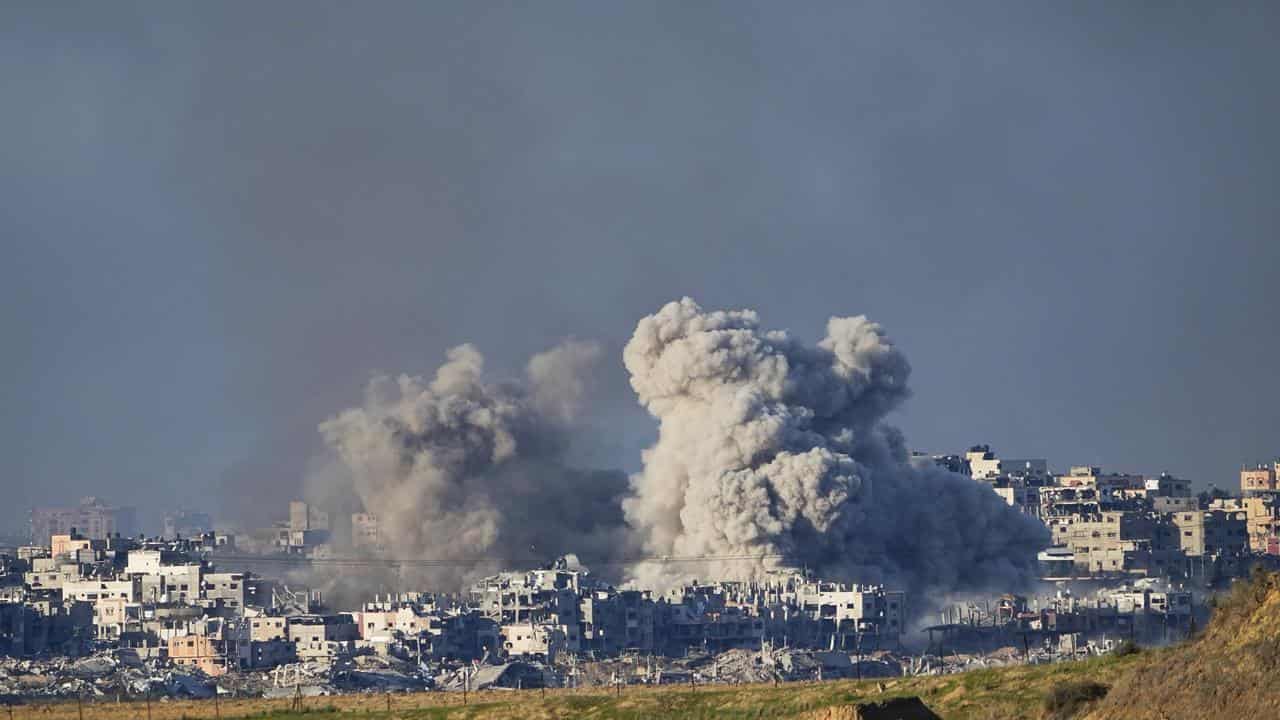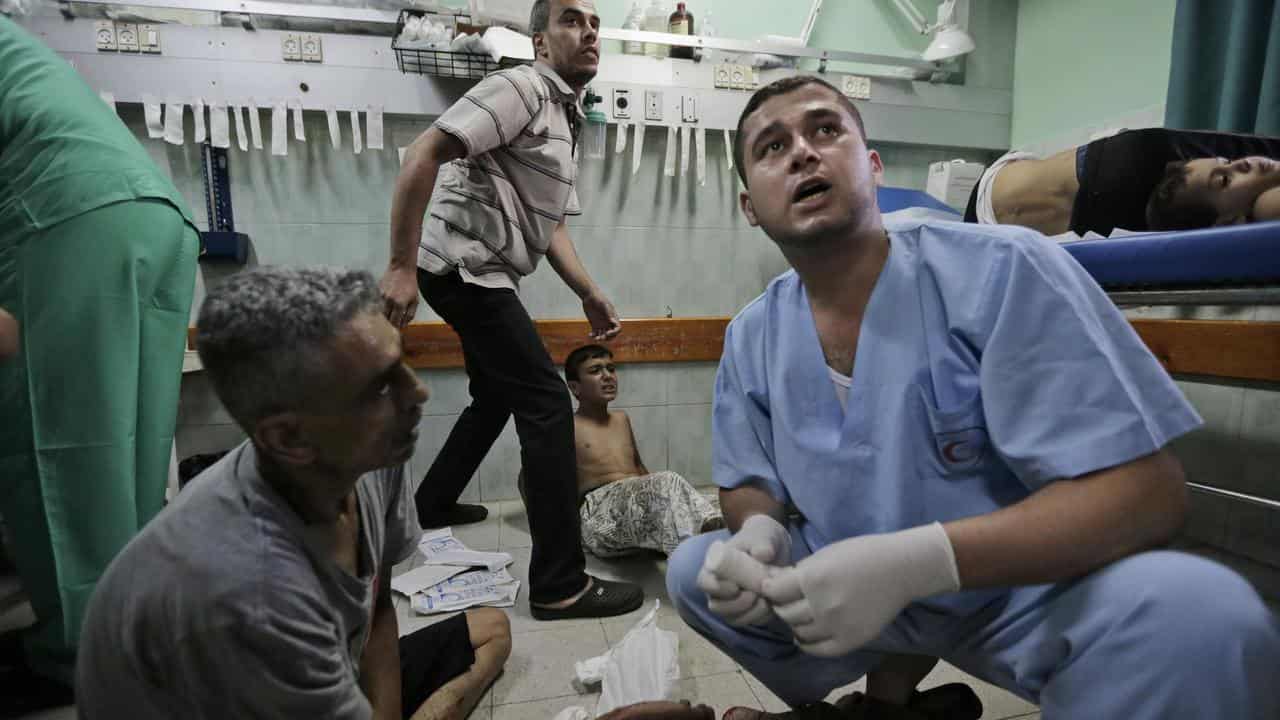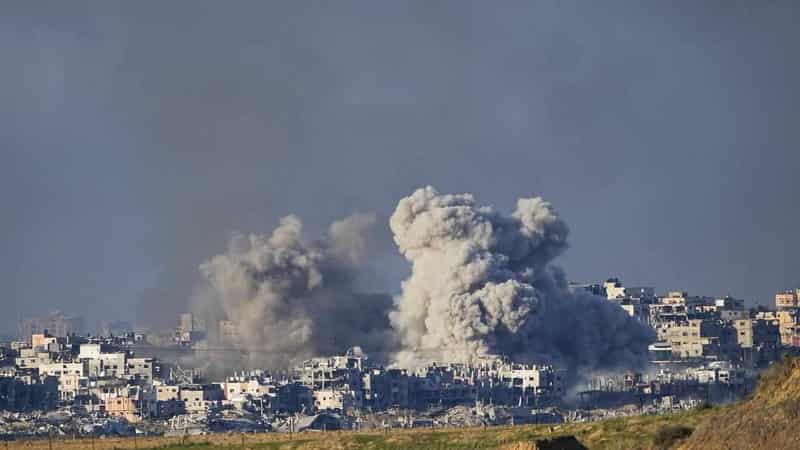
Israeli Prime Minister Benjamin Netanyahu has appeared to confirm new negotiations are under way to recover hostages held by Hamas, after a source said Israel's intelligence chief met the leader of mediating country Qatar.
In a televised press conference a day after Israeli forces mistakenly killed three of the more than 100 hostages held by Hamas, Netanyahu called the conflict an existential war that must be fought until victory, despite pressure and costs.
He vowed to destroy Hamas, the militant group that runs Gaza.
Netanyahu spoke after the head of Israel's Mossad spy agency, David Barnea, met Qatari Prime Minister Mohammed bin Abdulrahman Al Thani in Europe late on Friday, according to a source, and attention turned to a possible new Gaza truce and a prisoner and hostage deal.

Netanyahu sidestepped a question about the meeting, but confirmed he had given instructions to the negotiating team.
"We have serious criticisms of Qatar ... but right now we are trying to complete the recovery of our hostages," he said, alluding to the Gulf state's ties to Hamas and Israel's arch-foe Iran.
A Hamas statement said the group "affirms its position not to open any negotiations to exchange prisoners unless the aggression against our people stops once and for all," adding: "The movement communicated this position to all mediators."
Israel's counterattack on Gaza - after a surprise cross-border assault on October 7 in which Hamas militants killed 1,200 people and captured 240 hostages - has killed close to 19,000 people, according to Gaza health authorities. Thousands more are feared buried under rubble.
The deaths of the three hostages, killed while holding white flags, have put increased pressure on Netanyahu to find a way to secure the release of those held.
Several hundred people staged a protest in Tel Aviv, with some holding placards, including one saying "get them out of hell." A speaker shouted: "Bring them home now".

The meeting in Europe was apparently the first between senior officials from Israel and Qatar, which has been acting as a mediator, since the collapse of a seven-day ceasefire in late November.
The truce allowed dozens of Israeli hostages held in Gaza to be released in exchange for Palestinian prisoners in Israel.
Combat has intensified in the two weeks since.
Israeli targets on Saturday included a crowded YMCA building where hundreds of displaced people were sheltering, and Palestinian health officials reported dozens killed or wounded in attacks.
Two Christian women who had taken refuge in a church complex were shot dead by an Israeli soldier, Roman Catholic Church authorities said. Seven other people were shot and wounded.
The official Palestinian news agency WAFA said at least three dozen people had been killed in strikes on three houses in the Jabalia refugee camp.
The Israeli military said it had bombed a building in Jabalia after its forces came under fire and Hamas militants were seen on the roof.
In northern Gaza, Israeli troops made hundreds of people taking refuge inside the Kamal Adwan hospital leave, and evacuated wounded patients and medical staff to the hospital grounds.

The Israeli military said the hospital was being used as a Hamas "command and control centre" and that soldiers had detained around 80 militant fighters before leaving the site on Saturday.
US President Joe Biden's national security adviser, Jake Sullivan, has urged Israel to scale down its Gaza campaign and transition to more narrowly targeted operations against Hamas leaders, US officials said.
Sullivan said the timing was under "intensive discussion" between the allies.
"Every day the situation gets worse. Food gets less, water gets worse; only death, fear and destruction get greater," said Samira, 40, a mother of four, who is displaced in Rafah, near the southern border with Egypt.
In signs of the wider ramifications of the conflict, Yemen's Iranian-backed Houthis said they had attacked the Israeli Red Sea resort of Eilat with a swarm of drones, one of several drone incidents reported in the region on Saturday.
Major freight firms said they would avoid the Suez Canal as the Houthis stepped up attacks on commercial vessels in the Red Sea.









